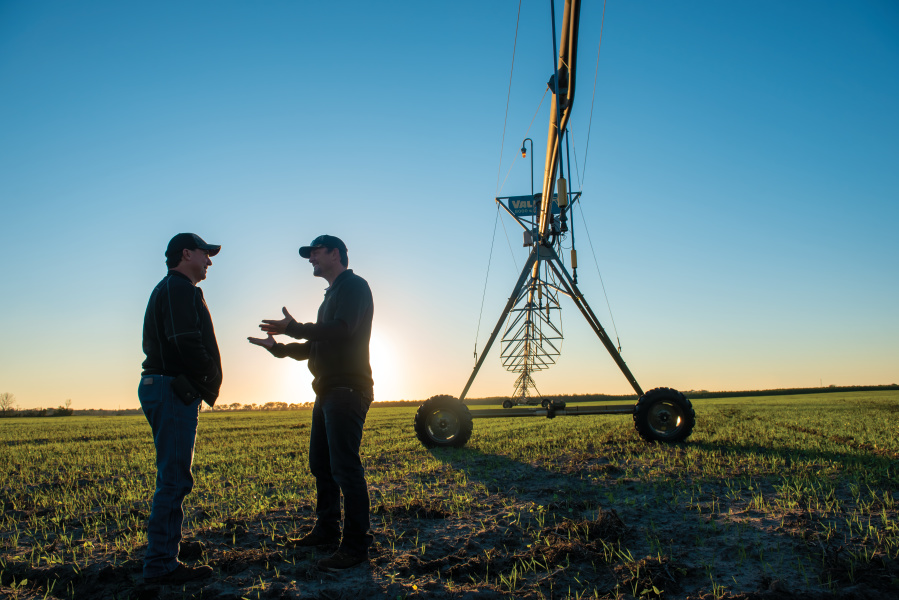
Next time you plunge a salty, crunchy potato chip into a tub of creamy dip, thank a farmer – specifically, the farmers at Black Gold Potatoes in Suwannee County.
A fourth-generation family-owned business, Black Gold was founded in North Dakota in 1928. The farm began as an Angus cattle farm and expanded into potatoes. The “Black” in the name represents both the soils and the Black Angus hide, while “Gold” represents the golden potato skin. The company has since expanded across the country, and in 2007, they planted roots in Live Oak, which is named after the large shade trees that grow in the area.
“The farm operates with long-term land partners on 2,300 acres of center-pivot farmland,” says Tommy Ransom, farm manager at Black Gold’s Live Oak location. Ransom is responsible for the day-to-day operations on the farm and working with Black Gold support teams, such as agronomy, financial and service.
“Chip potato varieties are the main crop grown on the Live Oak farm, and the annual volume is based on customer needs,” he says. “In a season, the farm has produced over 700,000 hundredweight.”
Ransom says in addition to chip potatoes, Black Gold is also involved in the production, sales and transportation of fresh and sweet potatoes, as well as commodities such as soybeans, corn and peanuts.
See more: After Nearly 100 Years, This Florida Potato Farm Is Staying True to Its Roots
Prime Growing Conditions

Thanks to its well-drained, sandy soils and warm climate, Florida serves as a prime spot for growing chip variety potatoes.
“Our center-pivot irrigation system provides us with very good growing conditions as well as the ability to reliably supply our customers during harvest,” Ransom says.
Typically, the potatoes are planted in early October and continue through late February or March. Harvest begins in April and continues through the fall until the next planting season. Chip potatoes have thin skin, high density and a pleasant round shape.
Ransom says although customer needs determine where the farm’s potatoes are shipped, historically, the Florida location ships to plants in the Southeast as well as Texas, Arkansas, Ohio and Pennsylvania, for the potatoes to be processed into potato chips.
Black Gold also partners with contract growers in geographies where their farms are located to make sure they can produce farm-fresh chip potatoes year-round.
See more: Deeply Rooted in Florida Ag, Singleton & Sons Farms Continues to Prosper
“Agvocates” for the Community

Leah Halverson, who works in marketing for Black Gold, says the farm is committed to teaching customers about its process and utilizing social media to tell the farm story.
“Black Gold Farms has an open-door policy,” she says. “We love to show consumers how food is produced, and we utilize social media in telling our farm story. The most popular posts are those when the tractors are in the field and when people can see who is working on the farm and in the shed.”
In addition, consumers can read blog posts about life on the farm, community events, industry events, farm safety, potato facts, recipes and more on the company’s website.
“We’re a dedicated partner to many organizations and associations both nationally and in the local communities we serve,” Halverson says.
Ransom adds that Black Gold Farms Florida works with the University of Florida Institute of Food and Agricultural Sciences on projects like fertilizer trials at their research station east of Live Oak. They also participate with land partners in the Florida Department of Agriculture and Consumer Services’ Best Management Practices program.
“The people who work on the farm live in the surrounding communities and take great pride in working at Black Gold, producing a high-quality product for our customers and focusing on doing everything possible to ensure our communities are strong and healthy,” Ransom says.

See more: A Behind-the-Scenes Look at How a Florida Farmer Grows Peanuts








